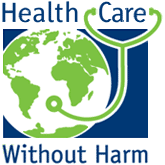Major California health and environmental organizations, including Health Care Without Harm and the San Francisco Bay Chapter of Physicians for Social Responsibility (SF PSR)met with hospitals, meat producers, and supply chain representatives October 7th and 8th in San Francisco Bay Area to decide on a strategy for expanded procurement of meat raised without the use of non-therapeutic antibiotics.
Because of their purchasing power, hospitals and other large institutions can often tip the market towards increasing the provision of products they need. In California, aggregate data compiled by Health Care Without Harm and SF PSR found that 45 hospitals in California purchased 1,164,900 pounds of beef and 1,280,352 pounds of poultry in 2012 alone. Twenty-two of these health care institutions spent a combined total of $3,582,924 on local and/or sustainable food and beverages in 2012.
Many of these hospitals are looking to scale-up their sustainable purchasing to include larger volumes of meat produced without the use of non-therapeutic antibiotics. Seventy-eight percent of hospitals recently surveyed by Health Care Without Harm and SF PSR have a meat reduction and sustainable meat procurement program in place. At one such facility the University of California at San Francisco Medical Center the Academic Senate passed a resolution in the Spring of 2013 to phase out the procurement of meat raised with non-therapeutic antibiotics.
Unfortunately, hospitals have found it challenging to find supplies of meat produced without non-therapeutic antibiotics, which the October 7-8 meeting aims to redress.
Eighty percent of the antibiotics sold in the United States are used in animal agriculture, primarily for non-therapeutic purposes. These antibiotics are being used for growth promotion and to compensate for unsanitary living conditions. There is strong consensus among independent experts that overuse of medically important drugs in animal agriculture contributes to the growing problem of antibiotic resistance.
Joining the organizations for the meeting will be representatives of School Food FOCUS, an organization dedicated to the procurement of meat raised with minimal, safe, and sustainable (MSS) use of antibiotics for use in school system food services.
Although this is a regional meeting of stakeholders and food system experts, the results will have national implications. Both HCWH and School Food FOCUS work nationally with their respective institutional purchasing sectors, and the supply chain strategies developed at this meeting will be shared for replication in other regions of the country.
Posted by Lauren Harrity 10/15/13















